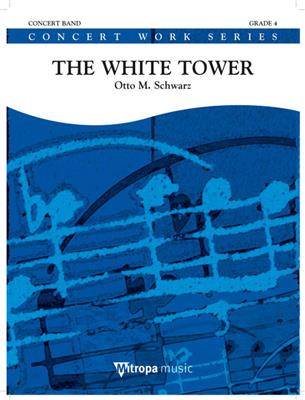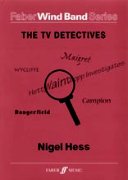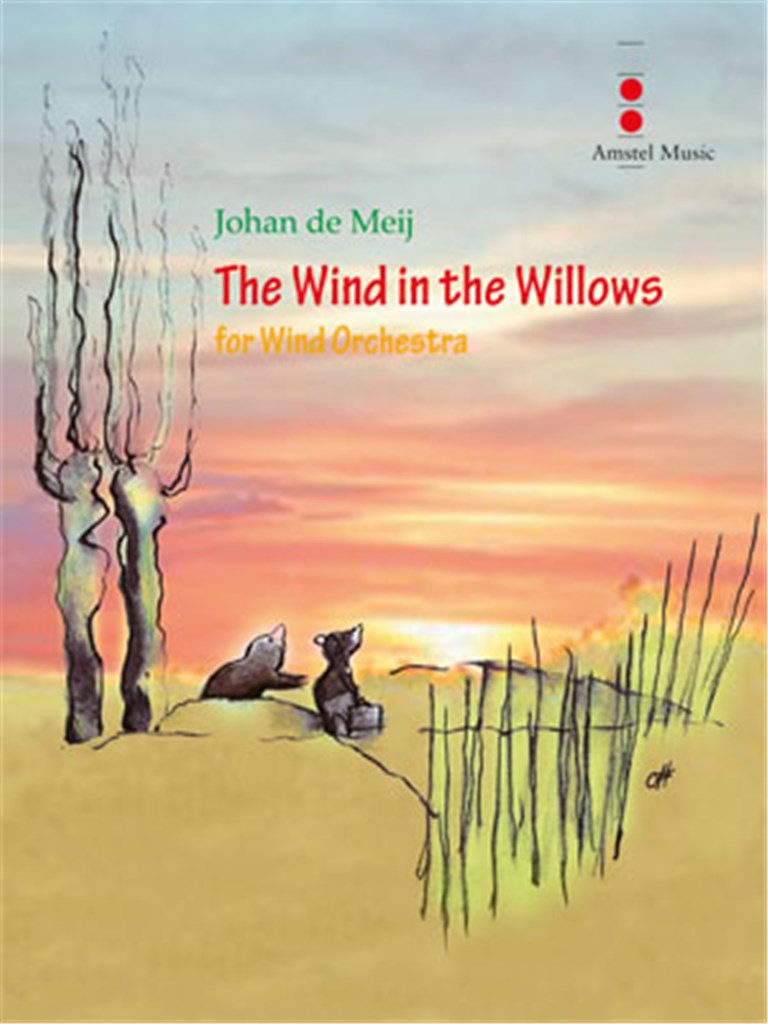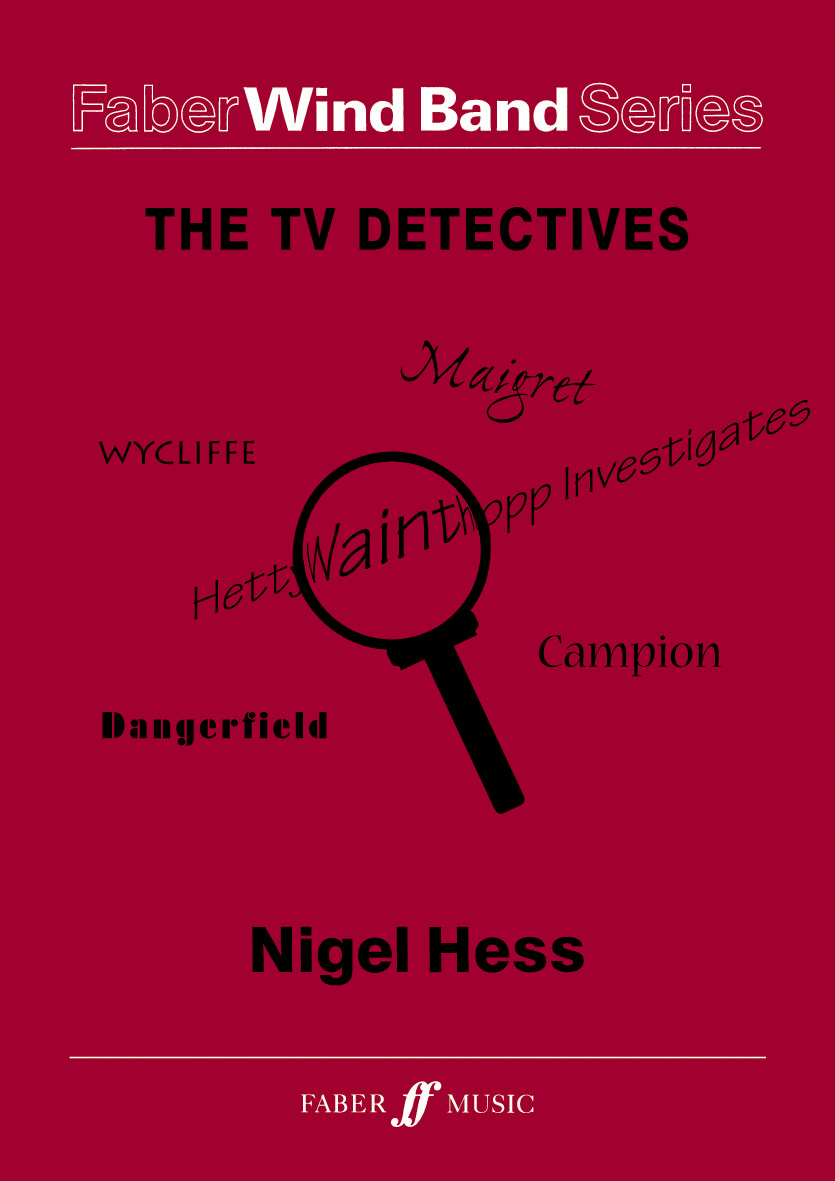Results
-
 £154.99
£154.99The Power of the Megatsunami - Carl Wittrock
The word 'tsunami' is of Japanese origin. When you look it up in a dictionary, you will find that it means 'a great sea wave produced by submarine earth movement or volcanic eruption'. A megatsunami is the superlative of this awesome expression of power that nature can create, and has catastrophic consequences. When Carl Wittrock completed this composition not many such big earth movements had occurred, but since then we have become all too familiar with the disastrous consequences which a tsunami may have. On the 26th of December 2004 a heavy seaquake took place near the Indonesian island of Sumatra. Tidal waves 10 meters in height ravaged the coastal regions ofmany countries for miles around. The tsunami took the lives of thousands of people and destroyed many villages and towns. There are more areas which run the risk of being struck by a tsunami, such as the island of La Palma, one of the Canary Islands. This island is based on oceanic crust at a fracture zone and as such is one of nature's time bombs. The consequences of a natural calamity like a megatsunami are immense. In the case of La Palma, the tidal wave will move in the direction of South America, where it may reach 50 km inland, destroying everything on its way. In his composition Wittrock describes an ordinary day which will have an unexpected ending. Right from the beginning there seems to be something in the air, the music creating an oppressive atmosphere of impending disaster. Themes are interrupted, broken off suddenly, followed by silence, suggesting the calm before the storm. Suddenly a short climax (glissandi in the trombone part) indicates the seaquake, and the megatsunami is a fact. Hereafter follows a turbulent passage symbolising the huge rolling waves. After nature's force has spent itself, resignation sets in and the composition ends with a majestic ode to nature.
Estimated dispatch 7-14 working days
-
 £154.99
£154.99The Power of the Megatsunami Wind Band Set (Score & Parts)
The word 'tsunami' is of Japanese origin. When you look it up in a dictionary, you will find that it means 'a great sea wave produced by submarine earth movement or volcanic eruption'. A megatsunami is the superlative of this awesome expression of power that nature can create, and has catastrophic consequences. When Carl Wittrock completed this composition not many such big earth movements had occurred, but since then we have become all too familiar with the disastrous consequences which a tsunami may have. On the 26th of December 2004 a heavy seaquake took place near the Indonesian island of Sumatra. Tidal waves 10 meters in height ravaged the coastal regions of many countries for miles around. The tsunami took the lives of thousands of people and destroyed many villages and towns. There are more areas which run the risk of being struck by a tsunami, such as the island of La Palma, one of the Canary Islands. This island is based on oceanic crust at a fracture zone and as such is one of nature's time bombs. The consequences of a natural calamity like a megatsunami are immense. In the case of La Palma, the tidal wave will move in the direction of South America, where it may reach 50 km inland, destroying everything on its way. In his composition Wittrock describes an ordinary day which will have an unexpected ending. Right from the beginning there seems to be something in the air, the music creating an oppressive atmosphere of impending disaster. Themes are interrupted, broken off suddenly, followed by silence, suggesting the calm before the storm. Suddenly a short climax (glissandi in the trombone part) indicates the seaquake, and the megatsunami is a fact. Hereafter follows a turbulent passage symbolising the huge rolling waves. After nature's force has spent itself, resignation sets in and the composition ends with a majestic ode to nature. 10:30
Estimated dispatch 7-14 working days
-
£78.99
Come To The Festival Tent! - Ernest Broeniman
This festive sounding march is reminiscent of those performed in Europe. European bands utilize euphoniums in harmony, and this is the case with "Come to the Festival Tent." Very powerful and articulate!
Estimated dispatch 7-14 working days
-
 £248.99
£248.99The White Tower - Otto M. Schwarz
The year is 1798 and thieves, robbers, and bandits prowl the countryside, wreaking havoc wherever they go and more often than not escaping without so much as a scratch. This was, however, not the case with a supposedly well-planned assault on the German town of Daaden, during which 20 long sought-after crooks from Germany, France, and Holland where captured. Otto M. Schwarz' exciting musical montage lets people experience the planning, assault, and attempted retreat first hand!
Estimated dispatch 7-14 working days
-
 £109.99
£109.99Toward The Bright Future - Naoya Wada
Naoya Wada's style is characterised by a positive and optimistic undertone. This is also the case in this composition, with the expressive title Towards the Bright Future. The opening fanfare is played by the brass and immediately provides the basis for the themes in a composition where melodious passages alternate with blaring brass and several flashing changes of time. This work was composed on commission to the Kokura Nishi High School Band for its 110th anniversary. The composer dedicated it to Hirofumi Matsumoto, the school''s director.
Estimated dispatch 7-14 working days
-
 £65.00
£65.00The TV Detectives (Concert Band - Score and Parts) - Hess, Nigel
The TV Detectives brings together five of Nigel Hess's best-known television themes (Dangerfield, Campion, Wycliffe, Maigret and Hetty Wainthropp Investigates), all originally written for small-screen sleuths in whodunits that have been enjoyed by TV audiences worldwide.Dangerfield is a BBC series about a Warwickshire police surgeon, and originally starred Nigel le Vaillant, before Nigel Havers took over the lead role. Campion, also from the BBC, was based on Margery Allingham's stories of a mild-mannered 1920s gentleman detective, played by Peter Davison. Wycliffe was a long-running HTV series set in Cornwall and starred Jack Shepherd as a somewhat dour and low-key DCI - but, of course, he always solved the case! Michael Gambon starred in Granada TV's latest incarnation of the famous French detective Maigret, while Patricia Routledge played the OAP sleuth to perfection in Hetty Wainthropp Investigates, another popular BBC series. For the first time these popular tunes, which conjure up their programmes perfectly, have been arranged for wind band in a continuous suite.Duration: 8.00
Estimated dispatch 7-14 working days
-
 £248.99
£248.99The White Tower (Concert Band - Score and Parts)
The year is 1798 and thieves, robbers, and bandits prowl the countryside, wreaking havoc wherever they go and more often than not escaping without so much as a scratch. This was, however, not the case with a supposedly well-planned assault on the German town of Daaden, during which 20 long sought-after crooks from Germany, France, and Holland where captured. Otto M. Schwarz' exciting musical montage lets people experience the planning, assault, and attempted retreat first hand! 20:05
Estimated dispatch 7-14 working days
-
£65.00
The TV Detectives - Nigel Hess
The TV Detectives brings together five of Nigel Hess's best-known television themes (Dangerfield, Campion, Wycliffe, Maigret and Hetty Wainthropp Investigates), all originally written for small-screen sleuths in whodunits that have been enjoyed by TV audiences worldwide.Dangerfield is a BBC series about a Warwickshire police surgeon, and originally starred Nigel le Vaillant, before Nigel Havers took over the lead role. Campion, also from the BBC, was based on Margery Allingham's stories of a mild-mannered 1920s gentleman detective, played by Peter Davison. Wycliffe was a long-running HTV series set in Cornwall and starred Jack Shepherd as a somewhat dour and low-key DCI - but, of course, he always solved the case! Michael Gambon starred in Granada TV's latest incarnation of the famous French detective Maigret, while Patricia Routledge played the OAP sleuth to perfection in Hetty Wainthropp Investigates, another popular BBC series. For the first time these popular tunes, which conjure up their programmes perfectly, have been arranged for wind band in a continuous suite.
In stock: Estimated delivery 1-3 days
-
 £249.99
£249.99The Wind in the Willows - Johan de Meij
"A book for those who keep the spirit of youth alive in them; of life, sunshine, running water, woodlands, dusty roads, winter firesides" said author Kenneth Grahame (1859-1932) about his children's book The Wind in the Willows. Initially, he wrote the stories about Ratty, Mole, Badger and Toad to read to his visually handicapped son Alistair, but after the publication in book form in 1908, it became a worldwide success. It was later also turned into a film and a television series. What appealed ti the composer most is the friendly, very cosy atmosphere that Grahame has managed to create with his optimistic narrative style full of high spirits, an atmosphere that reminds thecomposer of his own carefree youth. It was therefore a great pleasure to set this book to music! The four movements successively describe:I) The River- The river, which flows through the habitat of the animals like a lifeline, regularly is the scene of pleasant boat trips and picnics. The animals lead their untroubled lives here. The four-tone main motif [A-C-D-C] is extensively presented by the brass section, and returns in the following movements as a countermelody. II) Ratty and Mole -The bright, energetic Rat and the melancholy doubter Mole are inseparable friends and have many adventures. Their opposite characters are illustrated by separate musical themes. III) Mister Toad - The wilful, haughty Mister Toad is indeed a unique case: time after time, he runs into tricky situations, and with his indomitable passion for fast - preferably stolen - cars he causes quite a lot of damage...IV) The Return of UlyssesAfter Toad Hall, the majestic residence of Mister Toad, is recovered from the weasels and stoats of the Wild Wood, who had captured the estate in a cowardly way, our friends get ready for a banquet. They celebrate the victory with a triumphant parade, and so both the book and the music conclude with a happy ending.
Estimated dispatch 7-14 working days
-
 £250.00
£250.00The Wind in the Willows (Concert Band - Score and Parts) - De Meij, Johan
A book for those who keep the spirit of youth alive in them; of life, sunshine, running water, woodlands, dusty roads, winter firesides, said author Kenneth Grahame (1859-1932) about his children's book The Wind in the Willows. Initially, he wrote the stories about Ratty, Mole, Badger and Toad to read to his visually handicapped son Alistair, but after the publication in book form in 1908, it became a worldwide success. It was later also turned into a film and a television series. What appealed ti the composer most is the friendly, very cosy atmosphere that Grahame has managed to create with his optimistic narrative style full of high spirits, an atmosphere that reminds thecomposer of his own carefree youth. It was therefore a great pleasure to set this book to music! The four movements successively describe: I) The River- The river, which flows through the habitat of the animals like a lifeline, regularly is the scene of pleasant boat trips and picnics. The animals lead their untroubled lives here. The four-tone main motif [A-C-D-C] is extensively presented by the brass section, and returns in the following movements as a countermelody. II) Ratty and Mole -The bright, energetic Rat and the melancholy doubter Mole are inseparable friends and have many adventures. Their opposite characters are illustrated by separate musical themes. III) Mister Toad - The wilful, haughty Mister Toad is indeed a unique case: time after time, he runs into tricky situations, and with his indomitable passion for fast, preferably stolen, cars he causes quite a lot of damage... IV) The Return of Ulysses - After Toad Hall, the majestic residence of Mister Toad, is recovered from the weasels and stoats of the Wild Wood, who had captured the estate in a cowardly way, our friends get ready for a banquet. They celebrate the victory with a triumphant parade, and so both the book and the music conclude with a happy ending. Duration: 17.00
Estimated dispatch 7-14 working days

